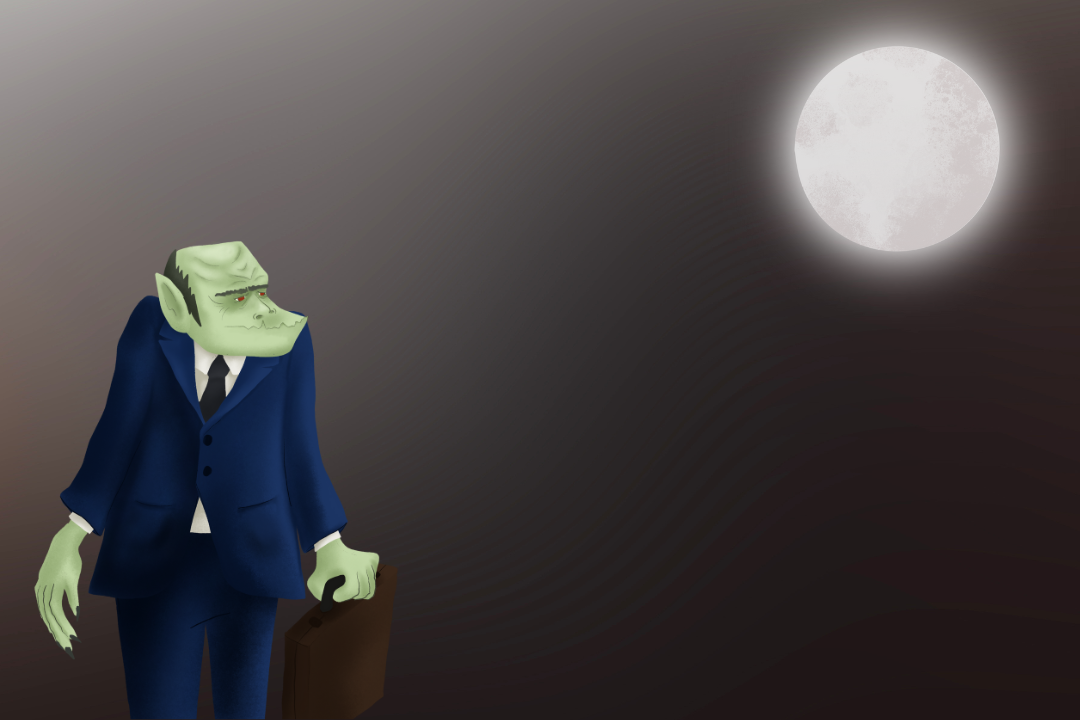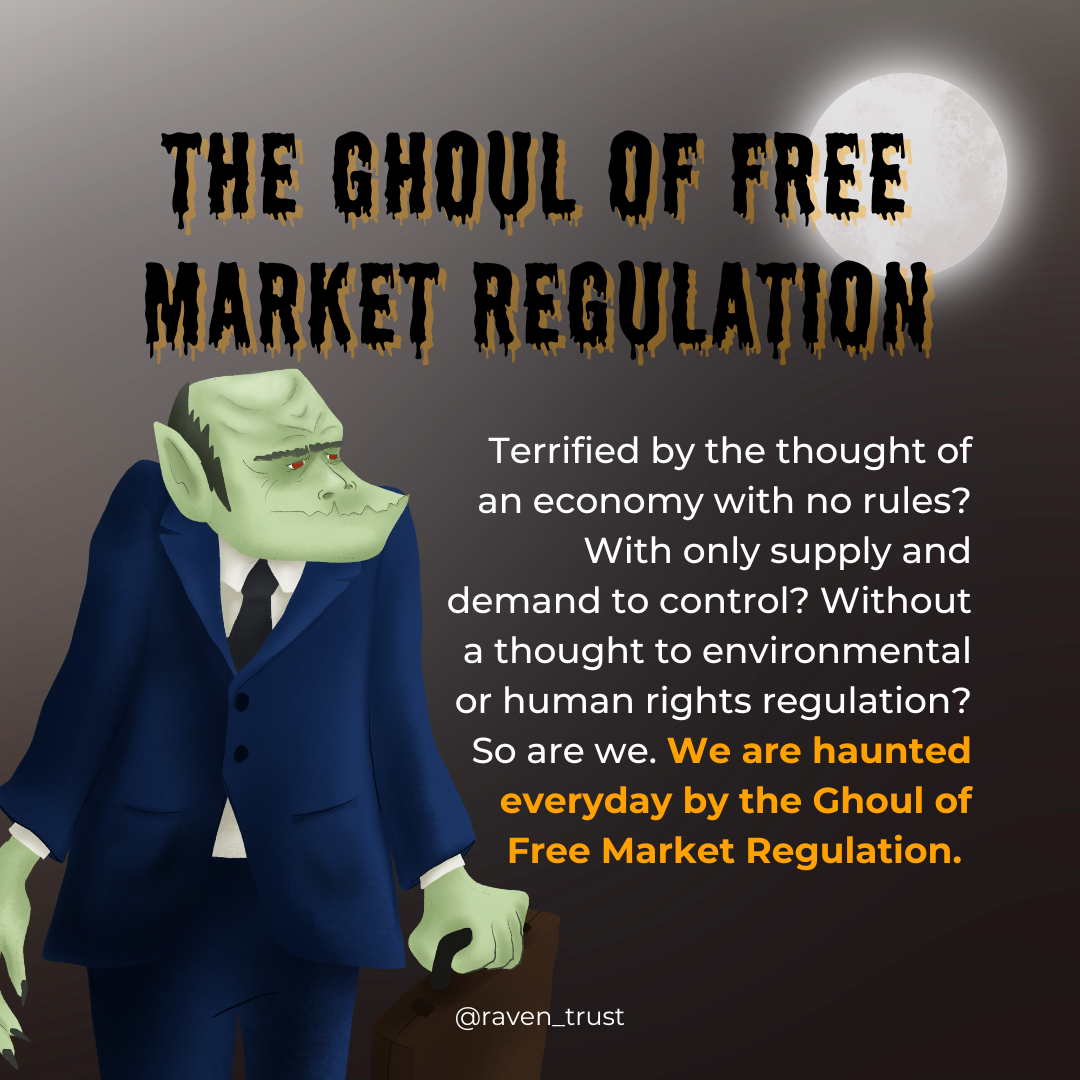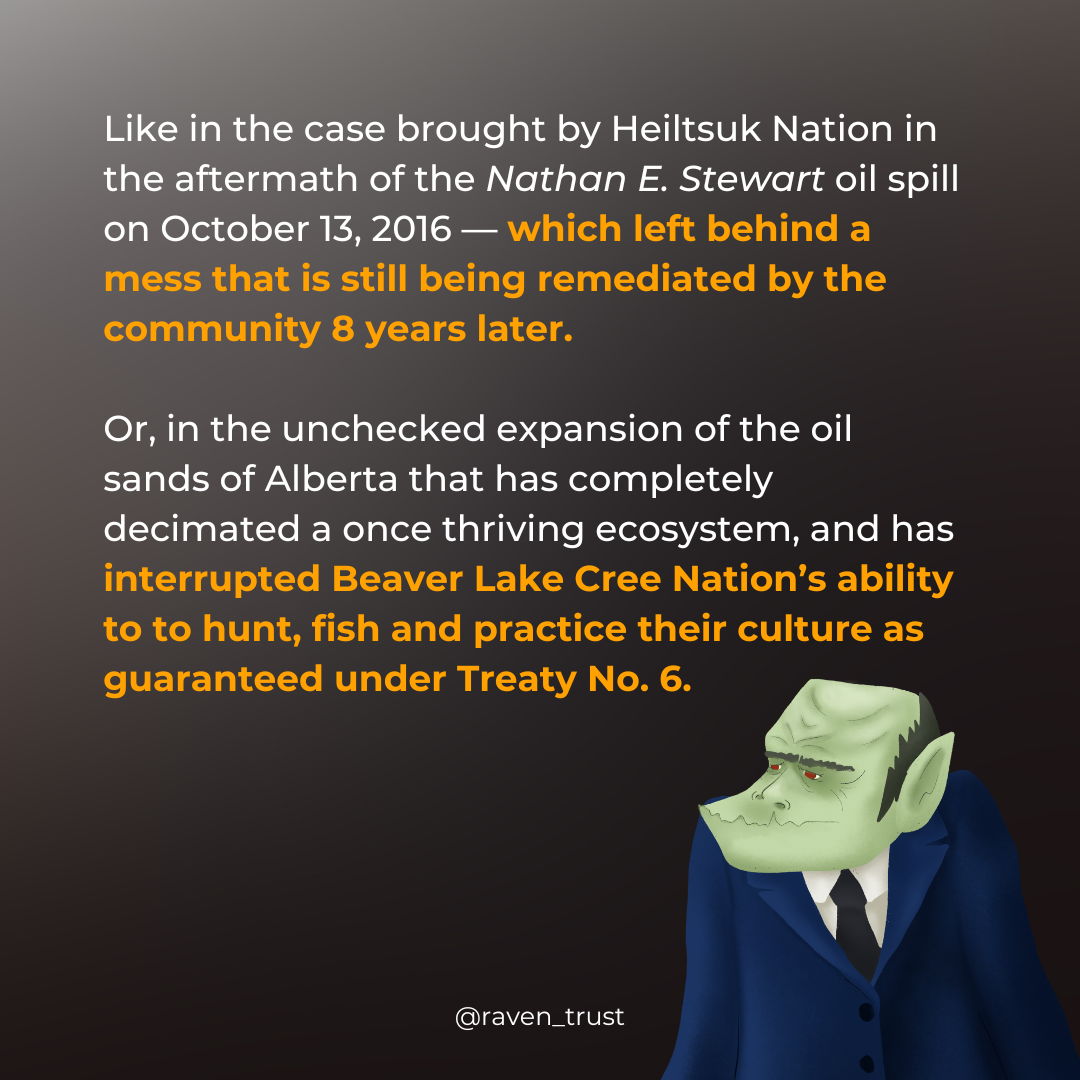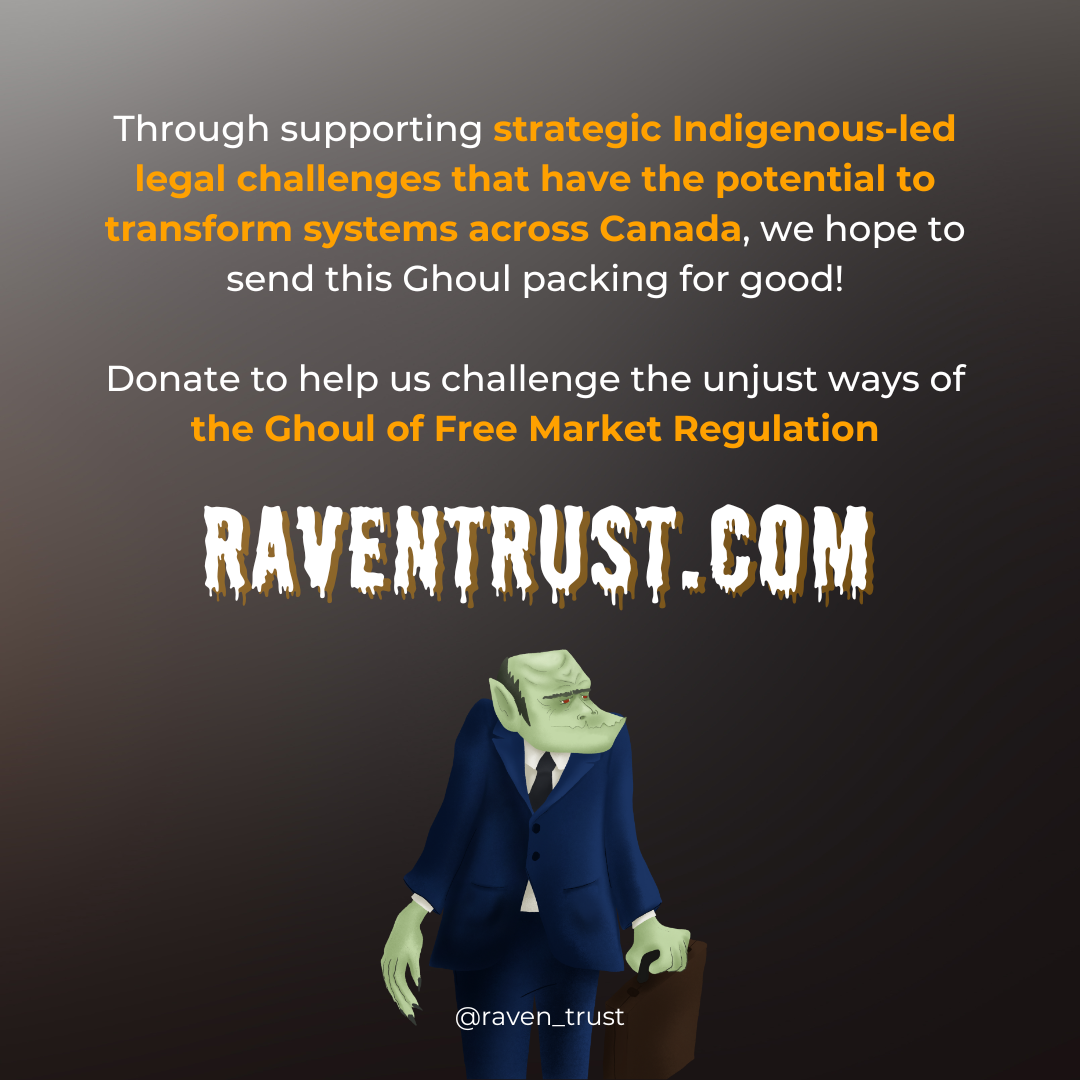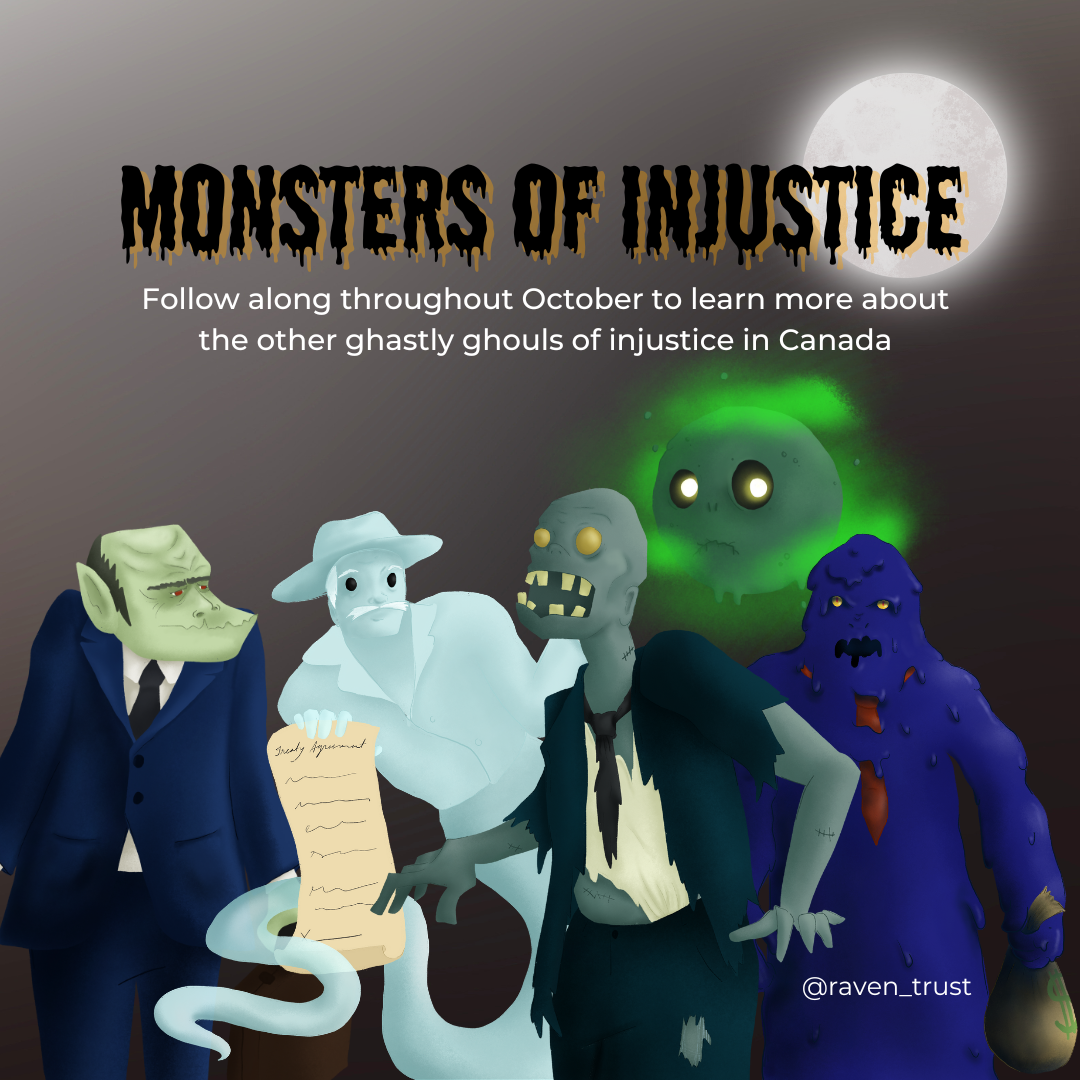Terrified by the thought of an economy with no rules? With only supply and demand to control? Without a thought to environmental or human rights regulation? So are we. We are haunted every day by the Ghoul of Free Market Regulation.
Free markets refer to economies in which there is no government control or intervention in the activities of the private sector. It’s a market where corporations are free to cause harm and environmental degradation so long as there is still a demand for their product.
Let’s back up. For the eerie month of October, we are telling stories of some of the ghastly ghouls that Indigenous Nations face. These vile villains, like the Ghoul of Free Market Regulation, will each have a spotlight on our social media and blogs this month, but this won’t be the last you hear of them! Keep an eye out for them and follow along to learn more about where they rear their ugly heads.
In our world today, we thankfully live with more of a mixed economy, not a purely free market, as we do have some government regulation. But the ghoul is always haunting and threatening us – we see those free market influences creeping into the minds of policy-makers who protect the deep pockets of corporations. Every time a company gets a slap on the wrist for a toxic spill or is able to leave an orphaned oil well in the ground without a cleanup, we see the impacts of a free market, a market without government intervention that requires companies to actually clean up the messes they make on our earth.
One example is the unchecked expansion of the oil sands of Alberta that has completely decimated a once thriving ecosystem and has interrupted Beaver Lake Cree Nation’s ability to hunt, fish, and practice their culture as guaranteed under Treaty No. 6.. As we know, the oil sands produce many pollutants that can be released into the environment and atmosphere, both when companies aren’t careful, and when they are careful and follow all the rules – because some pollutants are an inherent part of the process. Mercury and heavy metals are released into the water system surrounding oil sands after near-surface mining, which also causes soil instability and erosion. In-situ fracking releases enormous amounts of methane, which is 80 times worse for the climate than carbon dioxide. Air pollution from the vast Athabasca oil sands was recently reported to exceed the previously reported amounts of emissions by a staggering 1,900% to over 6,300%.
Another example is the harm caused to Heiltsuk Nation and their coastlines by the Nathan E. Stewart fuel spill on October 13, 2016 — A mess that is still being remediated by the community 8 years later. When the Nathan E. Stewart ran aground, it spilled 110,000 litres of diesel fuel and 2,000 litres of lubricants, heavy oils, and other pollutants. Kirby, the U.S.-owned company responsible for the shipment, completed a very limited environmental impact assessment, which did not paint the full picture of the damage caused by the spill. In addition, the current legislation didn’t provide any compensation for harms caused to Heiltsuk Nation’s rights to fish and harvest. This is one issue that pushed Heiltsuk Nation to take the matter to court to ensure that in the future, their rights, and those of other Indigenous Peoples, are considered in compensation from spills.
Keep an eye out for this ghoul throughout October and in the future. You’ll see his crepuscular face peeking out when we talk about the ways an economy that’s designed to favour a free market, where companies can act in their best interest as opposed to the collective wellbeing, wreak havoc on Indigenous territories and how Indigenous-led litigation is challenging his ghoulish ways in court.


